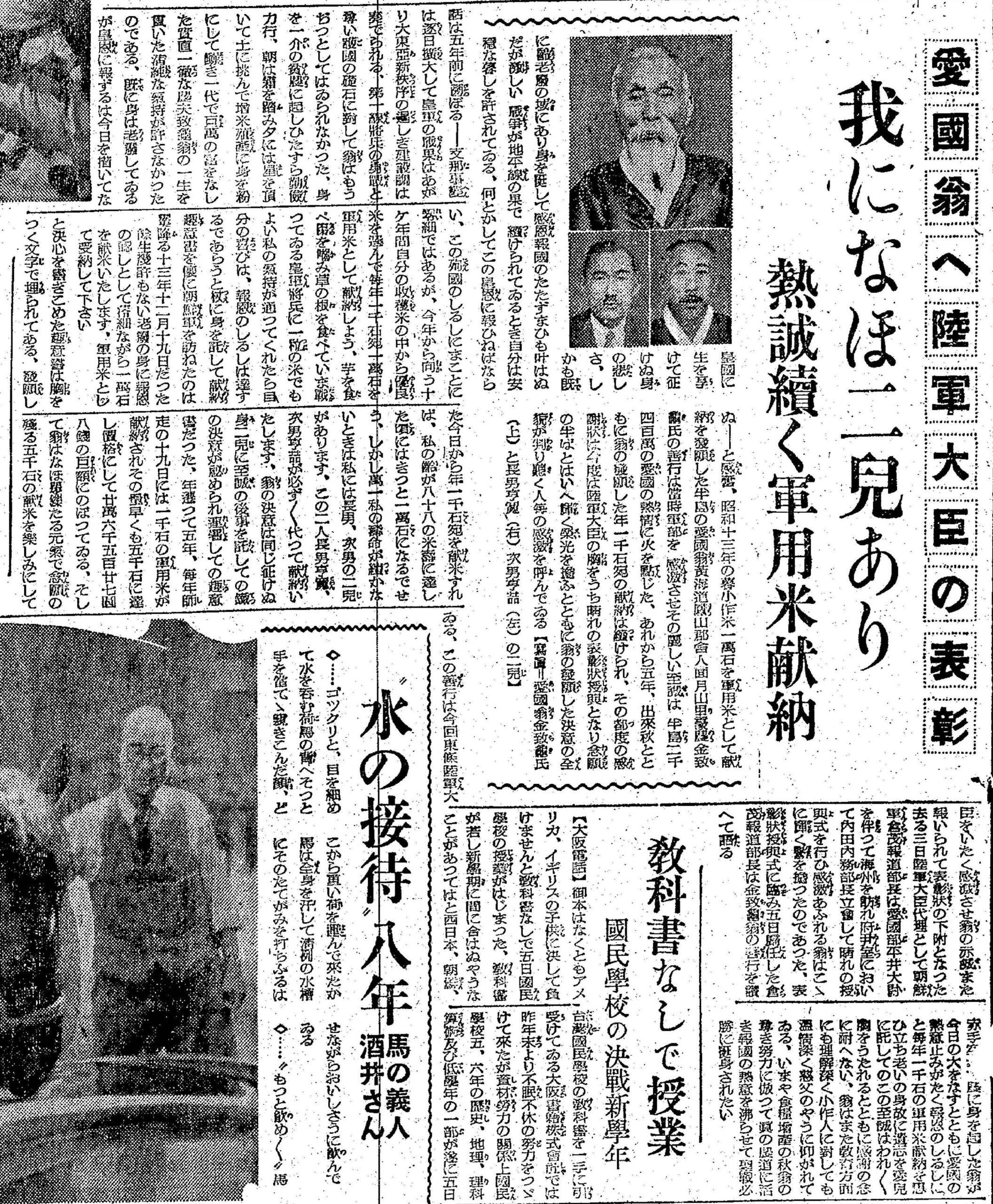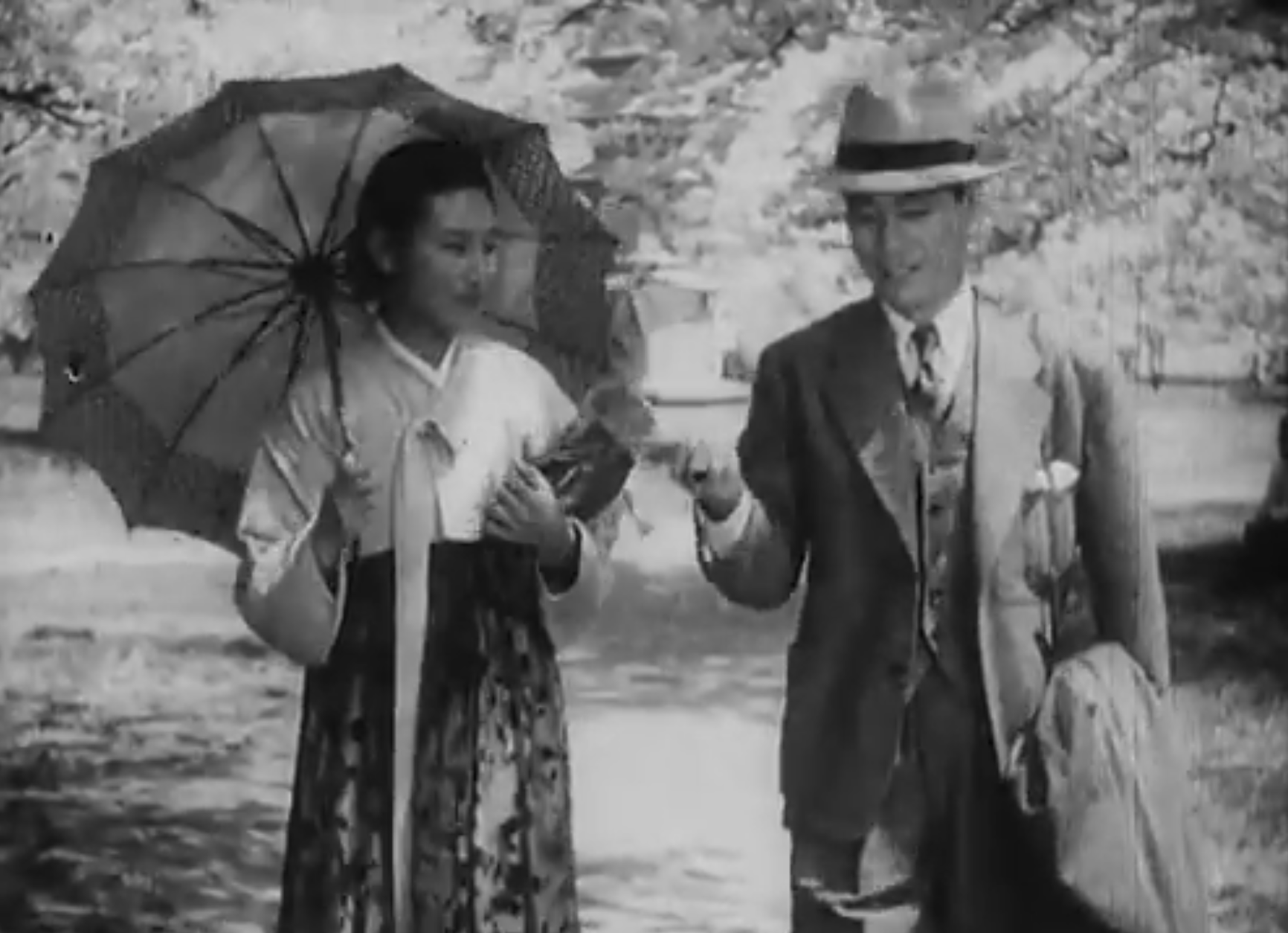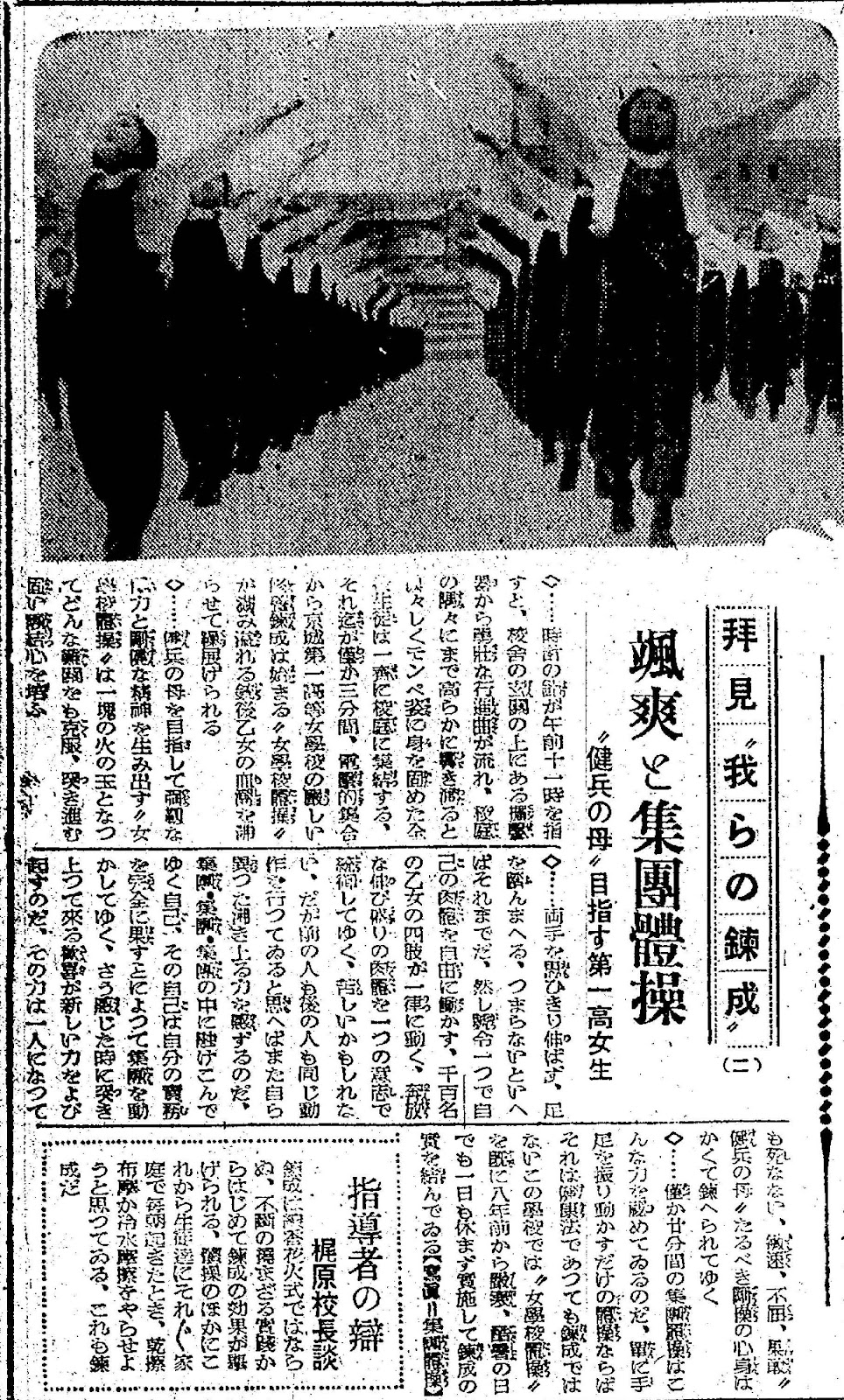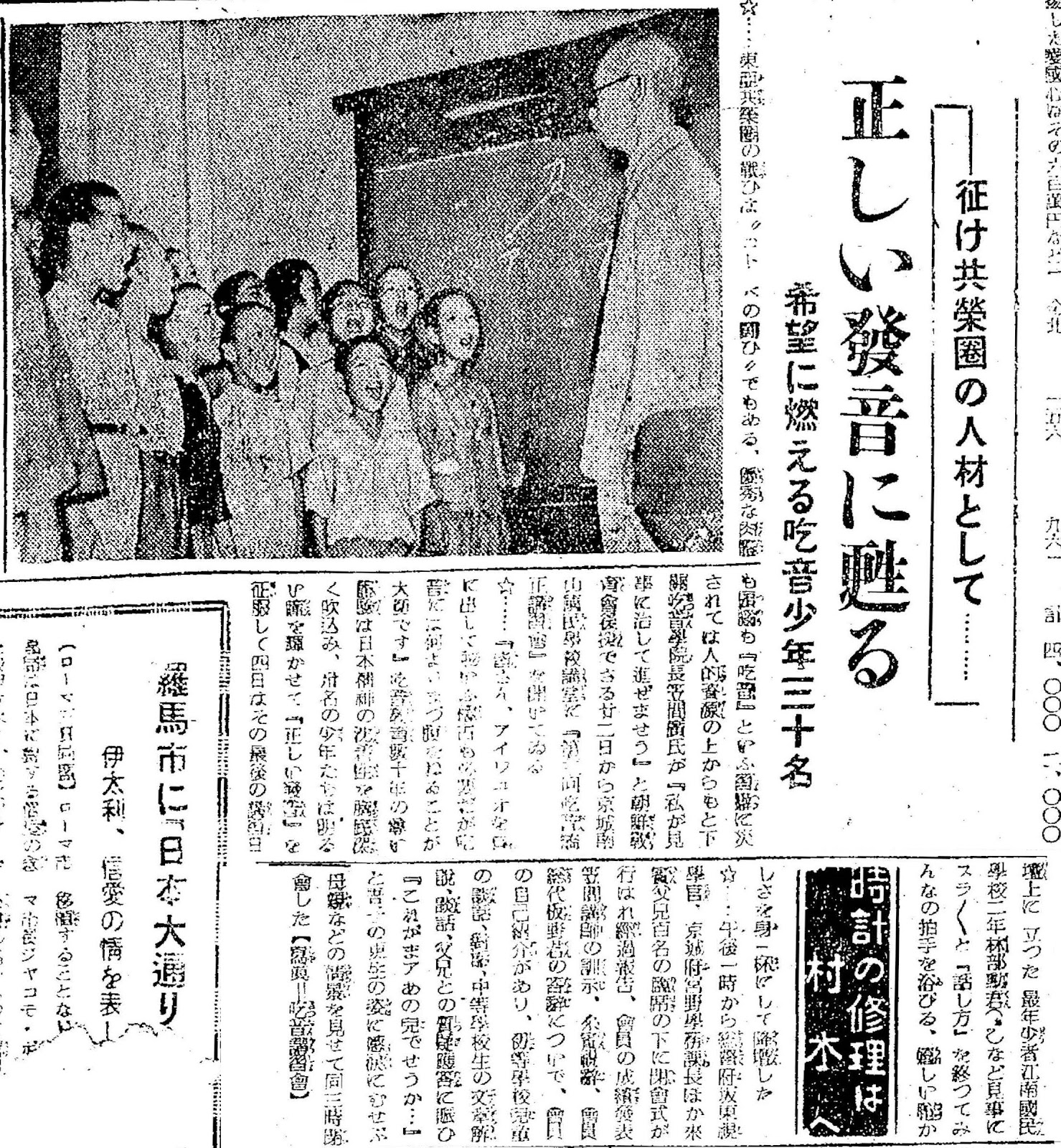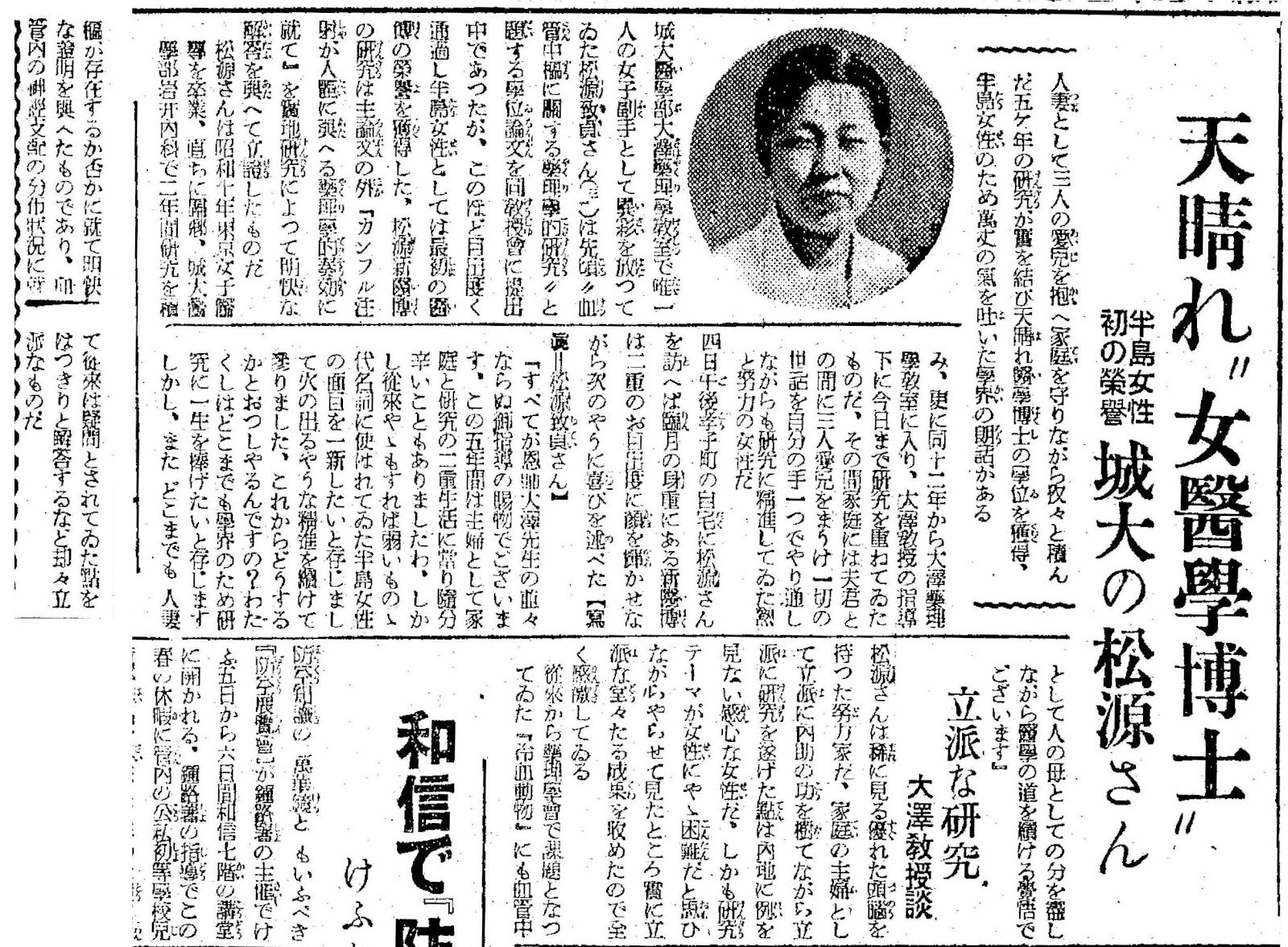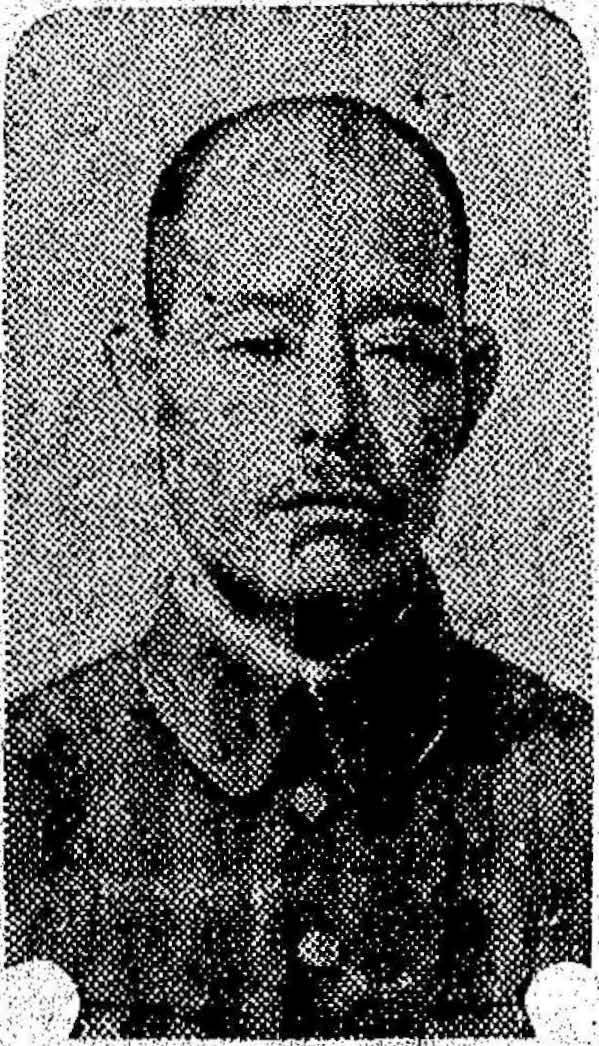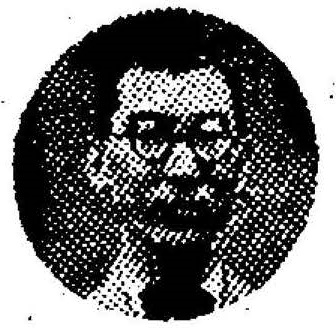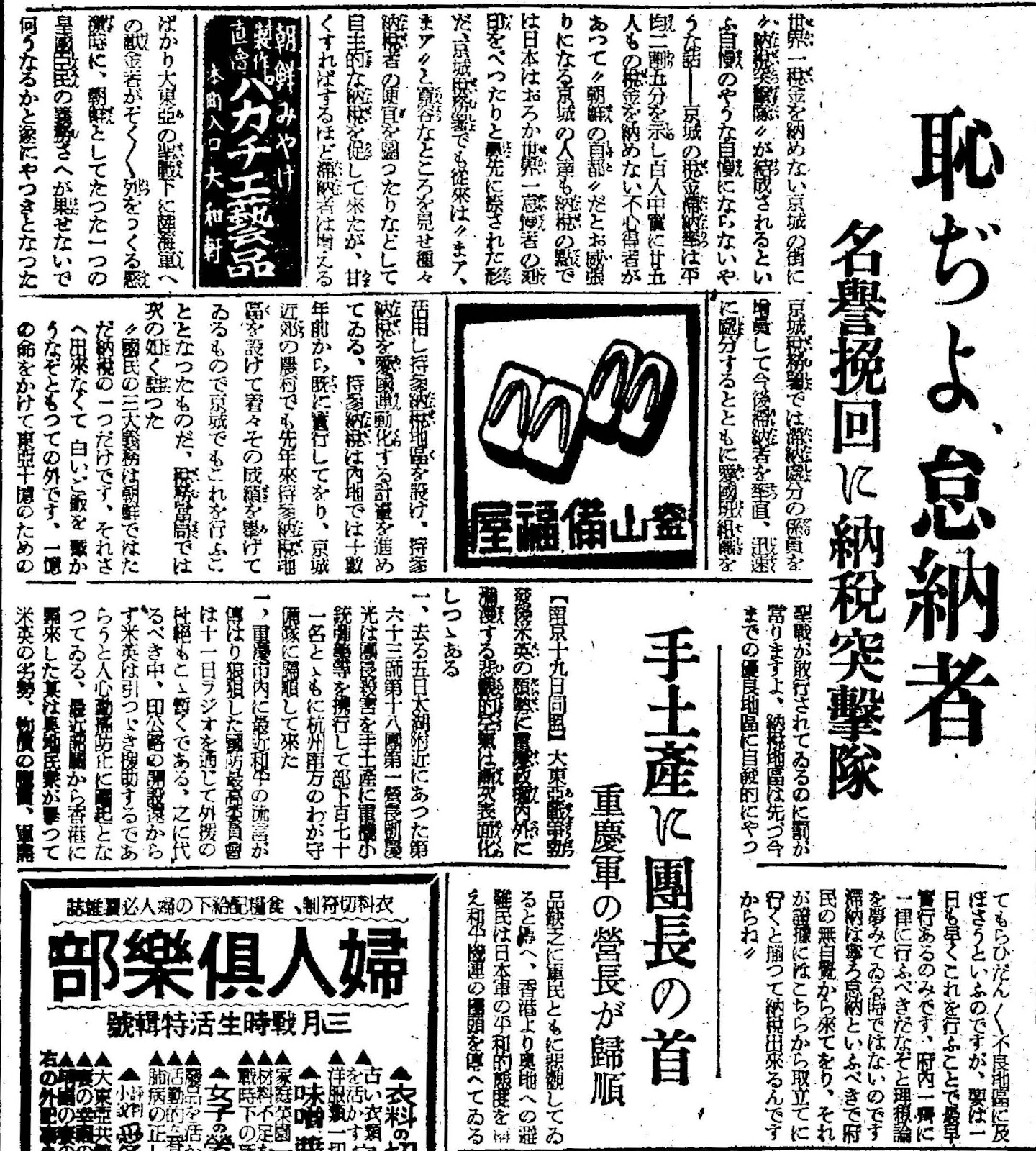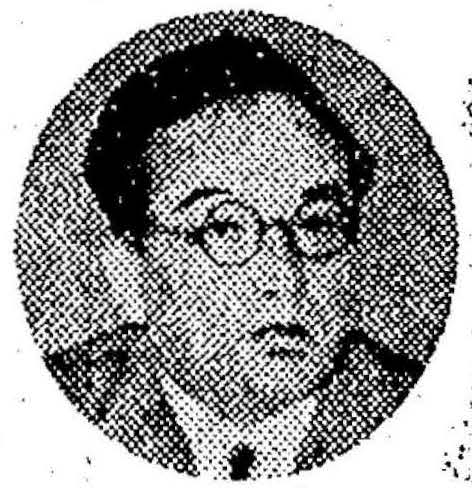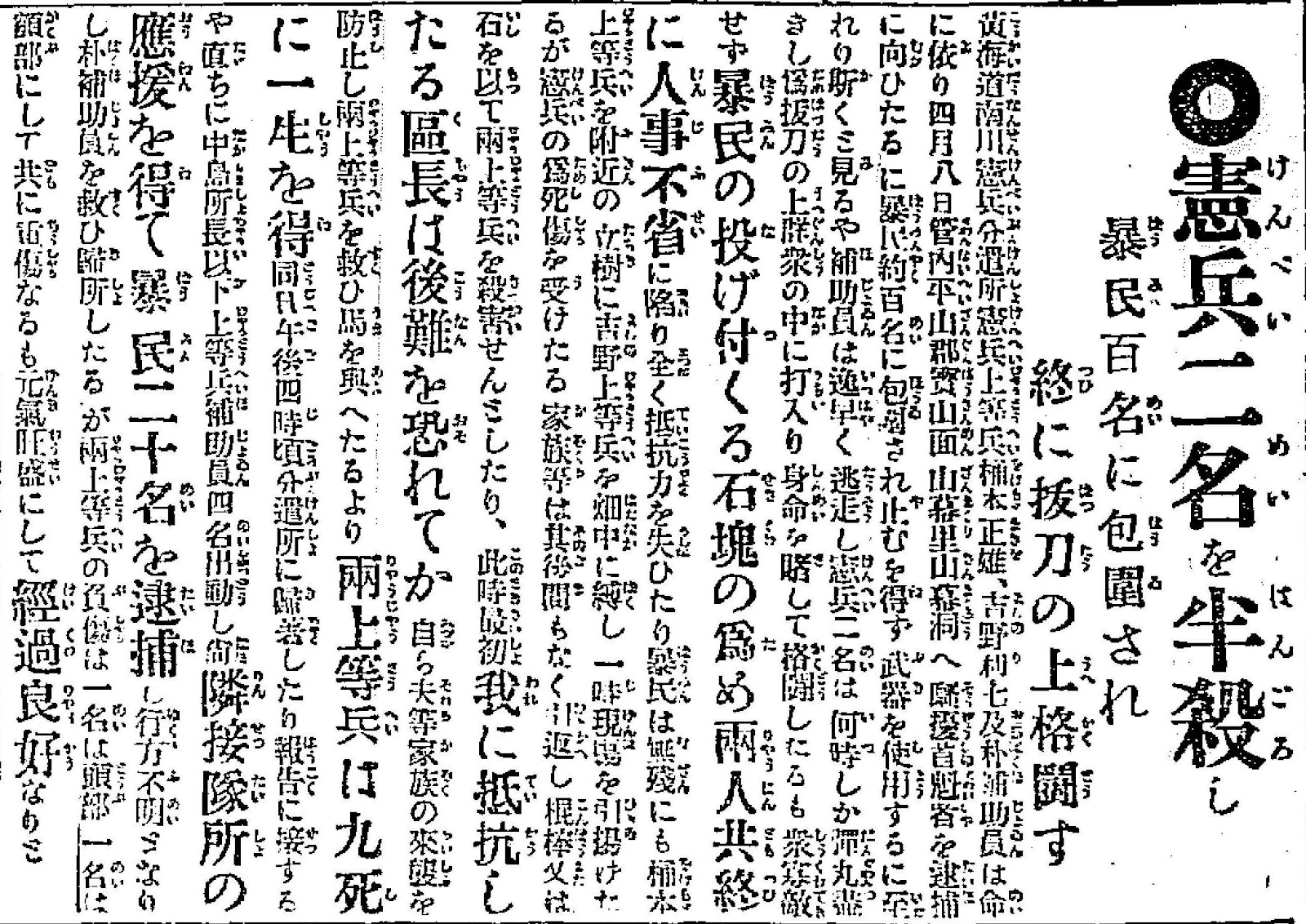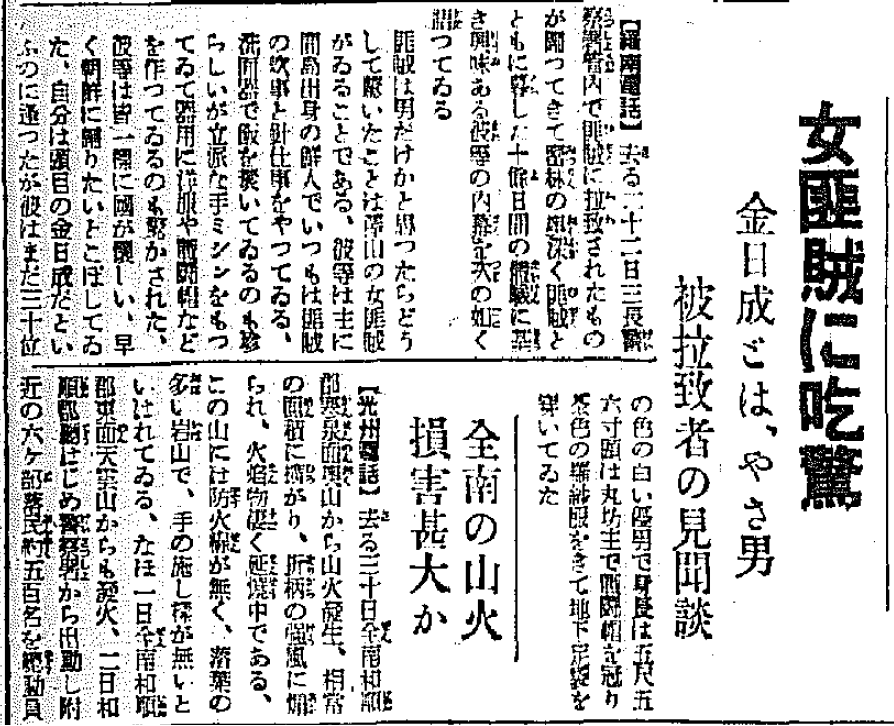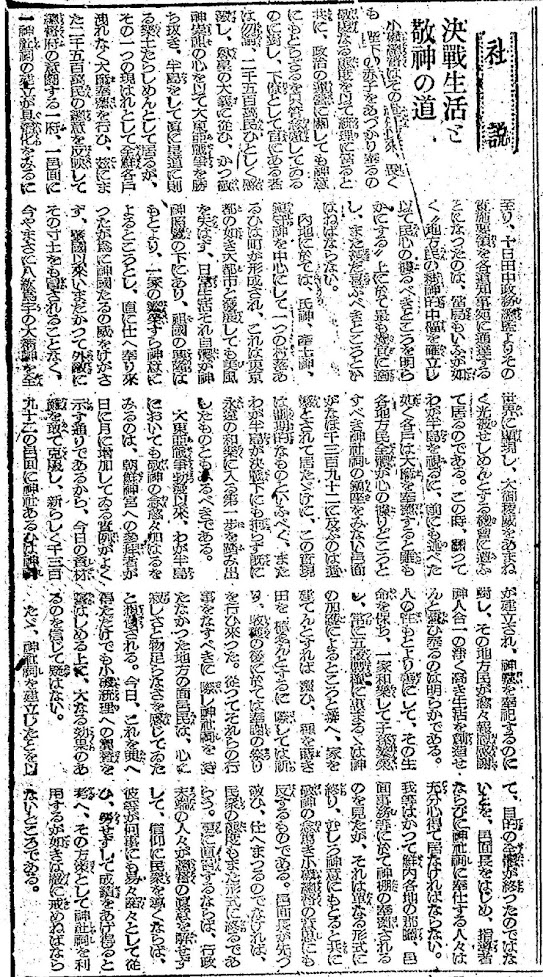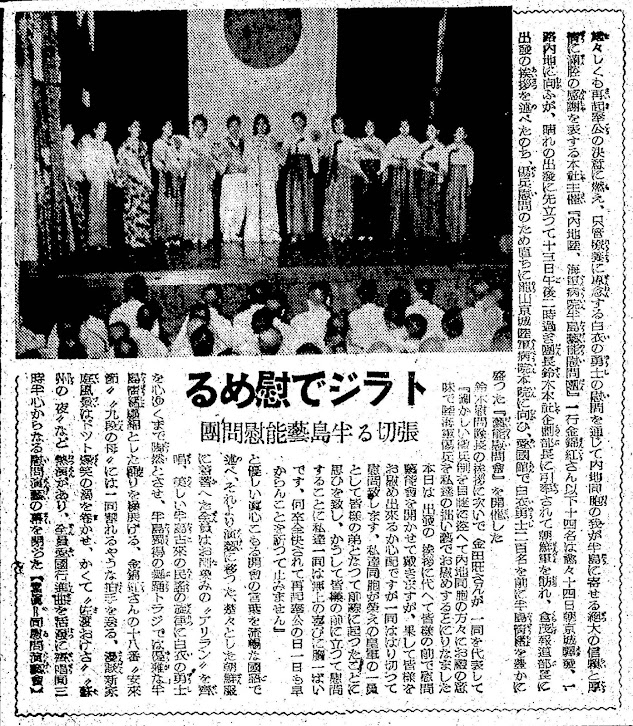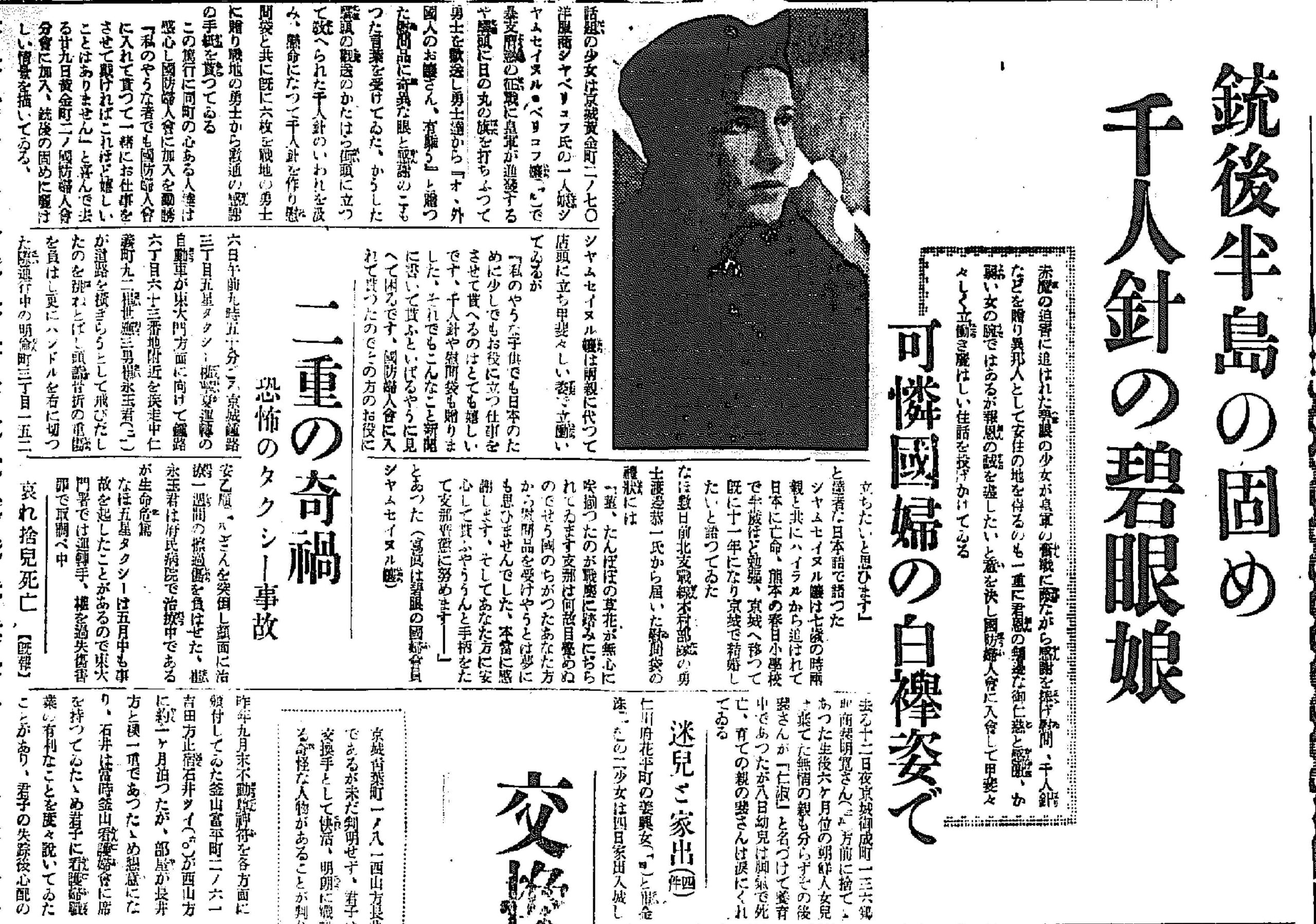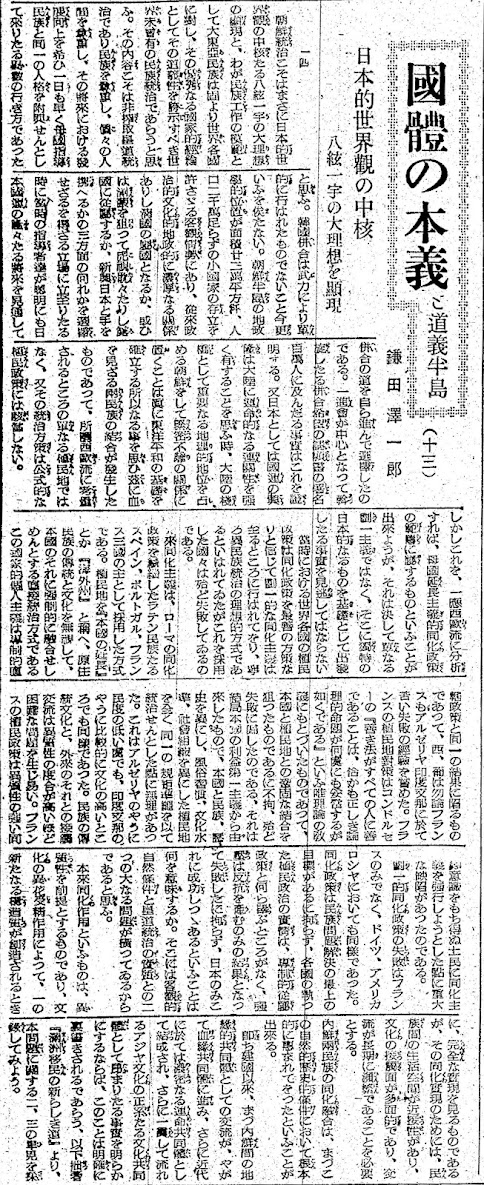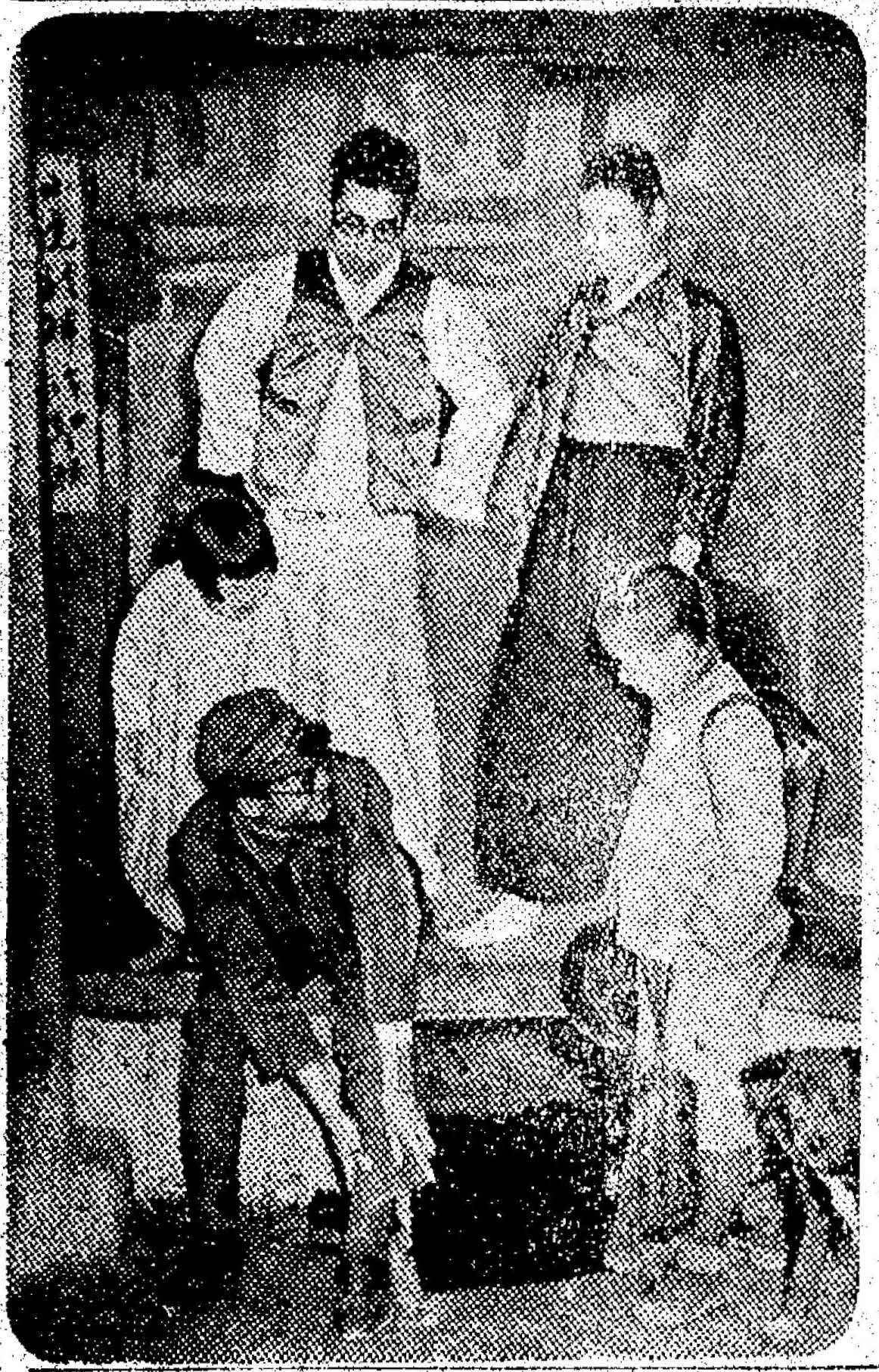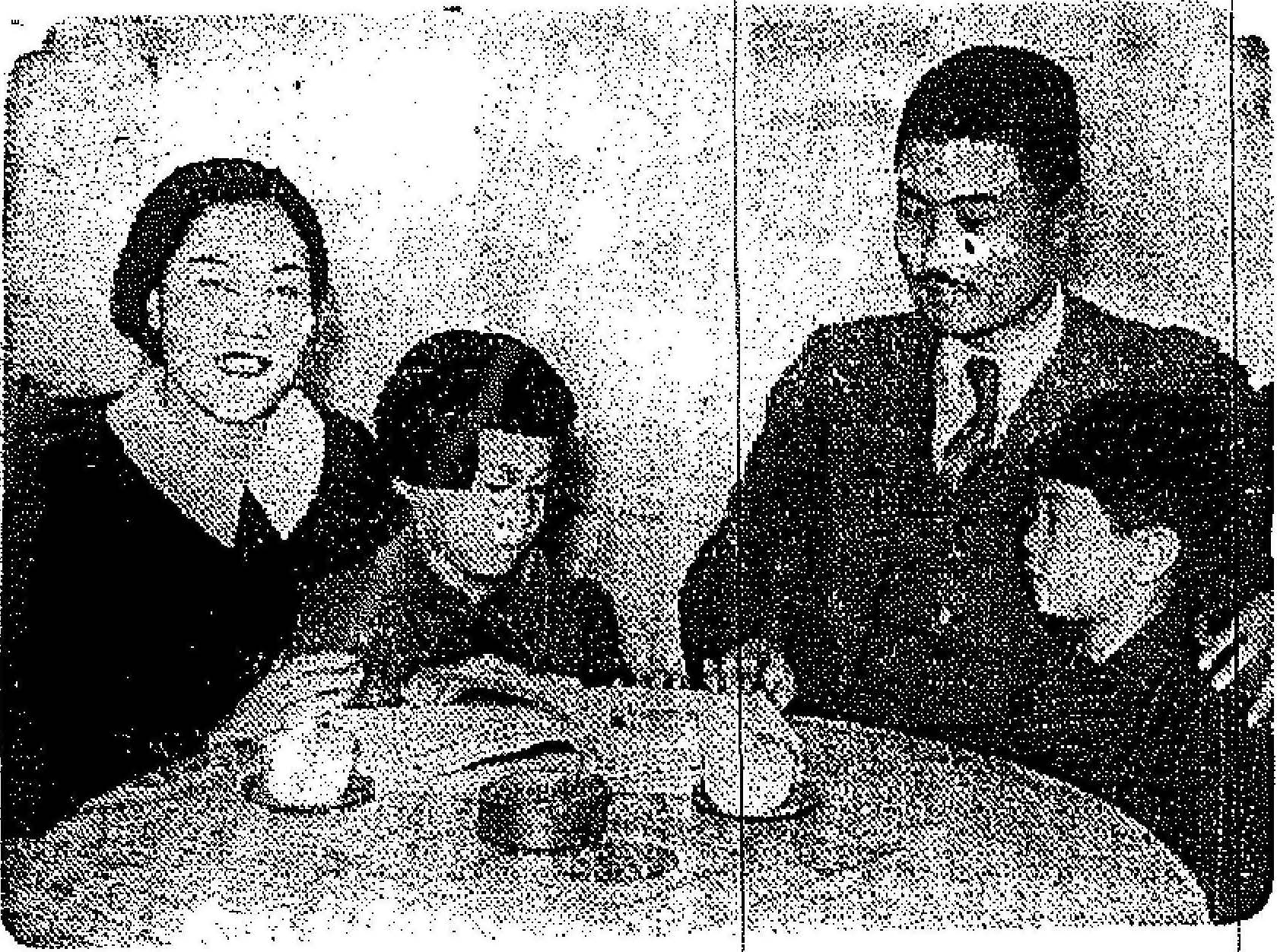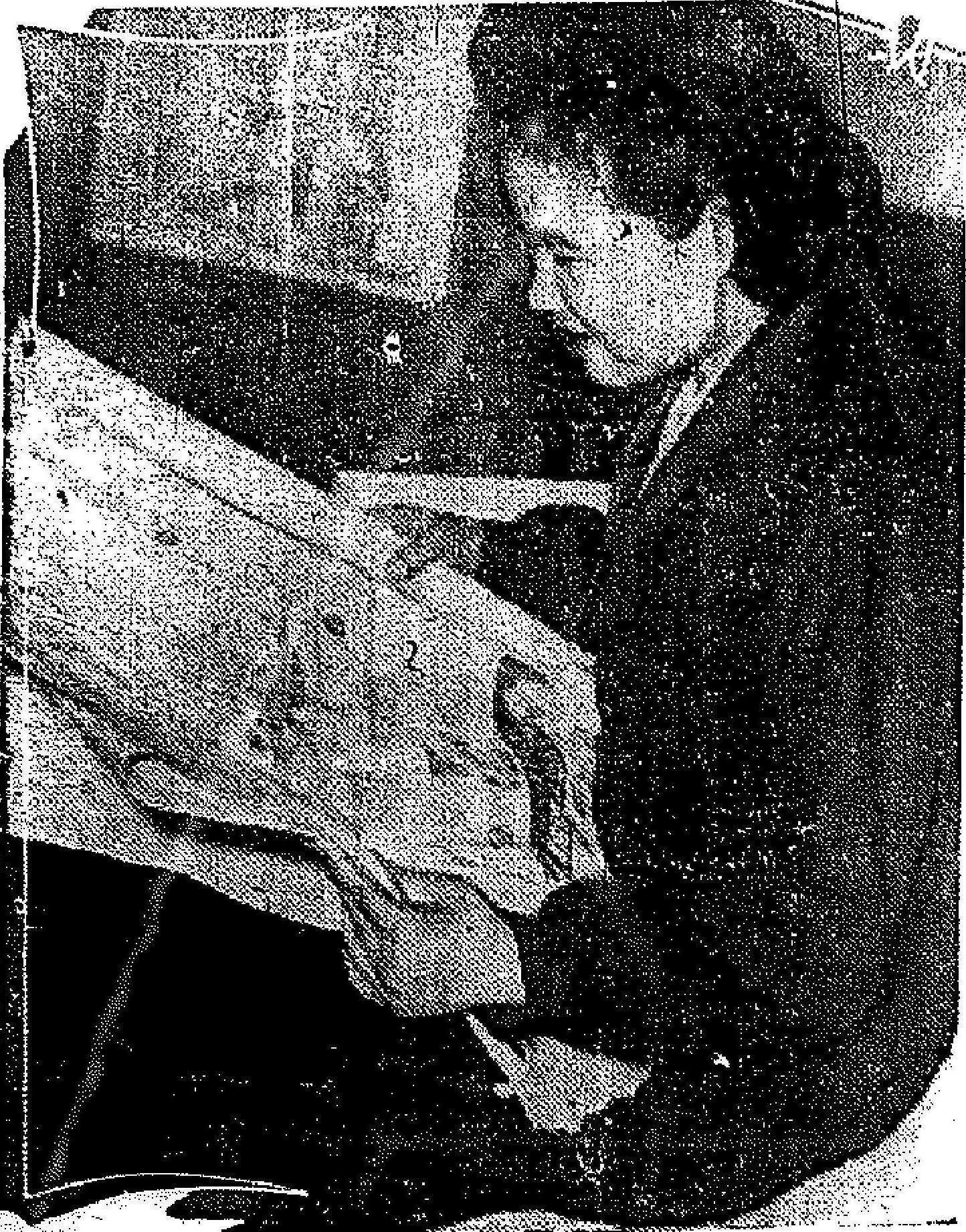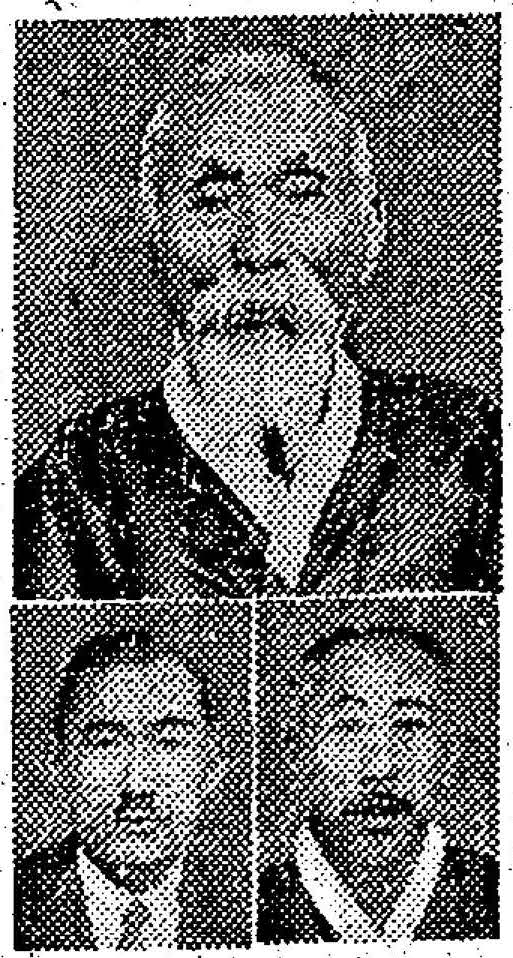
Elderly Korean farmer Kim Chi-gu (김치구, 金致龜), featured in 1943 article fervently donating 150,000 kg of rice to the Imperial Japanese Army every year and receiving honors from Prime Minister Tojo at a formal awards ceremony in Haeju
2024-04-22
168
1187
I wanted to share an intriguing article that I recently came across in an old issue of the Keijo Nippo newspaper, a known propaganda tool for the Imperial Japanese regime during their colonial rule over Korea from 1905 to 1945. This particular article, from 1943, a time marked by the Pacific War and significant food shortages, shines a light on a Korean farmer from Bongsan-gun, Hwanghae province—now part of North Korea.
The article narrates the tale of a farmer who committed to donating an enormous amount of rice—1,000 koku annually (about 150,000 kg) for a decade, starting in December 1938. Typically, stories in this newspaper featured middle to upper-class Koreans as exemplars of loyalty to the Japanese regime, but this one interestingly focuses on a farmer. What makes this story even more unique is the scale of the donation during a time when food scarcity was rampant, and the colonial authorities were desperate to boost agricultural output.
Given the context and the fact that this was a period of harsh exploitation under Japanese rule, the narrative of voluntary large-scale contributions to the Japanese military raises questions. The farmer, described as a model patriot, was likely a wealthy landlord with numerous tenant farmers, which possibly allowed him to make such substantial contributions.
The ceremony awarding him took place in Haeju, also in present-day North Korea. One can only imagine the real motivations and pressures behind such a donation. Given the socio-political dynamics and the subsequent Soviet occupation of the region post-1945, the fate of this farmer, if he didn’t manage to flee south, could have been dire under the new communist regime.
What was the real story behind this farmer’s “generosity”? This article seems to raise more questions than answers.
[Translation]
Gyeongseong Ilbo (Keijo Nippo) April 6, 1943
Minister of the Imperial Army Bestows an Award Upon the Patriotic Elder
The Patriotic Elder Has Two Sons
Continued Devotion to Donating Rice for Military Use
Born in the Imperial nation, yet unable to serve in its conquests due to age and frailty, the Patriotic Elder felt the bitter sadness of his unfulfilled duty. A fierce war was raging over the horizon, yet he was allowed to live in relative peace. This made him feel inspired to find a way to somehow repay this Imperial favor which had allowed him to live in such tranquility.
At the end of 1938, the elderly farmer, Mr. Kim Chi-gu (김치구, 金致龜) inspired the military with his pledge to donate ten thousand koku of tenant-farmed rice for military use. This noble act of the Patriotic Korean Elder of Weolsan-ri (월산리, 月山里) in Sain-myeon (사인면, 舍人面), Bongsan-gun (봉산군, 鳳山郡), Hwanghae province, ignited a patriotic fervor among the twenty-four million inhabitants of the Korean peninsula. Five years later, halfway towards fulfilling his original pledge, he still continues to contribute his annual commitment of one thousand koku of rice with each plentiful autumn harvest, and with each contribution, he receives an appreciation certificate. Deeply moved, the Minister of the Imperial Army upgraded this appreciation certificate to a splendid commendation certificate, not only bestowing shining glory upon the Patriotic Elder, but also deeply stirring the hearts of everyone who learned about the full extent of the Patriotic Elder’s resolve. [Photo= Patriotic Elder Mr. Kim Chi-gu (top photo), with his eldest son Kim Hyang-gwan (향관, 享寛) (right photo) and his second son Kim Hyang-cheol (향철, 享喆) (left photo)]
The story traces back five years. As the Manchurian Incident escalated daily, the valiant efforts of the Imperial troops heralded the robust construction of the Greater East Asia New Order. The Patriotic Elder could no longer sit still in the face of the valiant battles fought by the frontline soldiers and the precious cornerstones of national defense. Starting out as a mere poor farmer, he devoted himself to frugality and hard work, treading on frost in the morning and under the stars at night, challenging the soil to increase and multiply his rice production. He worked himself to the bone and amassed a great fortune in one generation. The pure and honest heart that guided Mr. Kim Chi-gu, a straightforward and devoted farmer, throughout his life, would not allow him to remain passive.
He wrote his donation pledge as follows: “Though my body is already frail and worn, there is no postponing my expression of gratitude to the Imperial favor. As a sign of my devotion to the nation, although modest, I will select the finest rice from my harvest and pledge to donate one thousand koku each year for the next ten years, totaling ten thousand koku of rice for military use. To do so, I will eat potatoes, chew on their skins, and subsist on grass roots. If even a single grain of rice can support the soldiers who are currently fighting, and my feelings are understood, then my joy and my sign of gratitude will be fulfilled.” Leaning on his cane, he visited the Japanese Korean Army on the snowy day of December 19, 1938, his donation pledge held close to his body.
“I, though frail and near the end of my life, commit to donating ten thousand koku as military rice. Please accept this humble offering,” he continued in this donation pledge written with such moving words with such resolve. “Starting today, I will donate one thousand koku annually until I reach the age of eighty-eight, by which time the total donated amount should be ten thousand koku. Should I pass before then, my two sons, Hyang-gwan and Hyang-cheol, will surely continue this commitment.” The Patriotic Elder’s firm resolve was entrusted to his sons, sealing their joint commitment in the pledge.
Over five years, each December 19th, one thousand koku of military rice was donated, soon adding up to five thousand koku, amounting to a significant value of 206,527 yen and 8 sen.
The Patriotic Elder, still vibrant and hopeful, looks forward to donating the remaining five thousand koku of rice. His good deeds profoundly moved Minister Tōjō, and three days ago, the Patriotic Elder’s sincere devotion was rewarded with a commendation certificate. Representing the Minister of the Imperial Army, Director Kuramo of the Korean Army Military Press Department, accompanied by Captain Hirai of the Patriotic Department, visited Haeju. In the presence of Director Uchida of the Interior Department at the governor’s office, a formal award ceremony was conducted, bestowing shining honor upon the deeply moved Patriotic Elder.
Returning five days later following the award ceremony, Director Kuramo spoke highly of Mr. Kim Chi-gu’s actions: “Starting from nothing, the elder rose to greatness. Driven by an unstoppable patriotic fervor and a desire to express his gratitude, he resolved to donate one thousand koku of military rice annually. Entrusting this sincere mission to his beloved children due to his old age, his commitment deeply moves and fills us with gratitude. The elder is also profoundly understanding in educational matters and shows deep warmth towards tenant farmers, revered like a benevolent father. Now, as we enter the autumn season of increased food production, let us emulate his noble efforts, live up to the true way of farming, and fervently contribute to the victorious prosecution of the Sacred War.“
[Transcription]
京城日報 1943年4月6日
愛国翁へ陸軍大臣の表彰
我になお二児あり
熱誠続く軍用米献納
皇国に生を享けて征けぬ身の悲しさ、しかも既に齢老廃の域にあり、身を挺して感恩報国のたたずまいも叶わぬだが激しい戦争が地平線の果てで続けられているとき自分は安穏な暮らしを許されている。何とかしてこの皇恩に報いねばならぬ、と感奮。
昭和十三年の暮れ、小作米一万石を軍用米として献納を発願した半島の愛国翁黄海道鳳山郡舍人面月山里豪農金致龜氏の善行は当時軍部を感激させ、その麗しい至誠は半島二千四百万の愛国の熱情に火を点じた。あれから五年、出来秋とともに翁の発願した年一千石宛の献納は続けられ、その都度の感謝状は今度は陸軍大臣の胸をうち晴れの表彰状授与となり、念願の半ばとはいえ、輝く栄光を担うとともに翁の発願した決意の全貌が判り聴く人毎の感激を呼んでいる。【写真=愛国翁金致龜氏(上)、と長男享寛(右)、次男享喆(左)の二児】
話は五年前に遡る。支那事変は逐日拡大して皇軍の戦果はあがり大東亜新秩序の逞しき建設調は奏でられる。第一線将兵の勇戦と尊い護国の礎石に対して翁はもうじっとしてはいられなかった。身を一介の貧農に起しひたすら勤倹力行、朝は霜を踏み夕には星を頂いて土に挑んで増米殖産に身を粉にして働き、一代で巨万の富をなした実直一徹な農夫致龜翁の一生を貫いた清純な気持ちが許さなかったのである。
「既に身は老廃しているが、皇恩に報ずるは今日を描いてない、この殉国のしるしにまことに零細ではあるが、今年から向かう十ヶ年間自分の収穫米の中から優良米を選んで毎年一千石宛一万石を軍用米として献納しよう、芋を食べ皮を噛み草の根を食べて、いま戦っている皇軍将兵に一粒の米でもよい、私の気持ちが通ってくれたら自分の喜びは、報恩のしるしは達するであろう」と杖に身を託して献納趣意書を懐に朝鮮軍を訪ねたのは雪降る十三年十二月十九日だった。
「余生幾許もない老廃の身に報恩の記しとして零細ながら一万石を献米いたします。軍用米として受納して下さい」と決心を書きこめた趣意書は胸をつく文字で埋められてある。「発願した今日から年一千石宛を献米すれば、私の齢が八十八の米寿に達した頃にはきっと一万石になるでしょう。しかし万一私の寿命が続かないときは、私には長男、次男の二児があります。この二人長男享寛、次男享喆が必ず必ず代って献納いたします」。翁の決意は同じ征けぬ身二児に至誠の後事を託しての鉄の決意が秘められ、連署しての趣意書だった。
年遷って五年、毎年師走の十九日には一千石の軍用米が献納され、その量早くも五千石に達し、価格にして二十万六千五百二十七円八銭の巨額にのぼっている。
そして翁はなお燦燦たる元気で念願の残る五千石の献米を楽しみにしている。この善行は今回東条陸軍大臣をいたく感激させ、翁の赤誠また報いられて表彰状の下附となった去る三日、陸軍大臣代理として朝鮮軍倉茂報道部長は愛国部平井大尉を伴って海州を訪れ、府尹室において内田内務部長立会して晴れの授与式を行い、感激あふれる翁は、ここに輝く誉れを担ったのであった。
表彰状授与式に臨み五日帰任した倉茂報道部長は金致龜翁の善行を讃えて語る。「赤手空拳、一度に身を起した翁が今日の大をなすとともに愛国の熱意止みがたく報恩のしるしにと毎年一千石の軍用米献納を思い立ち、老いの身故に遺志を愛児に託してのこの至誠はわれわれ胸をうたえるとともに感謝の念に耐えない。翁はまた教育方面にも理解深く、小作人に対しても温情深く、慈父のように仰がれている。いまや食糧増産の秋、翁の尊き努力に倣って真の農道に活き報国の熱意を沸らせて聖戦必勝に挺身されたい」。
Source: https://archive.org/details/kjnp-1943-04-06/page/n1/mode/1up
